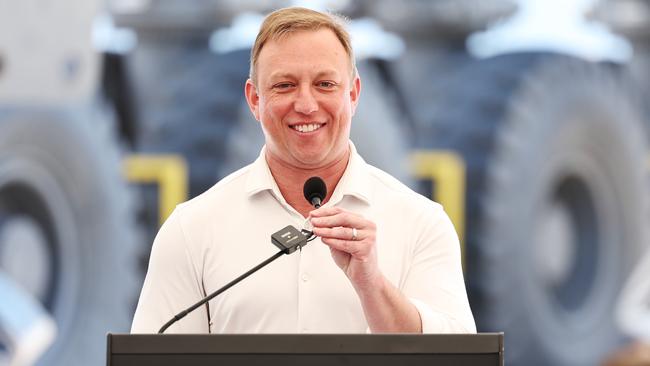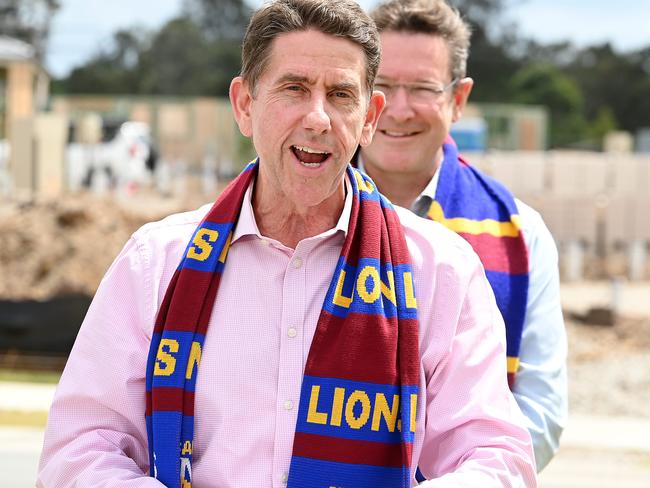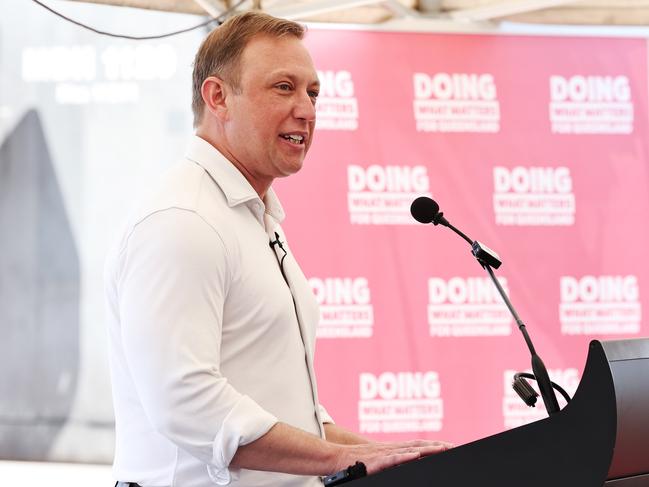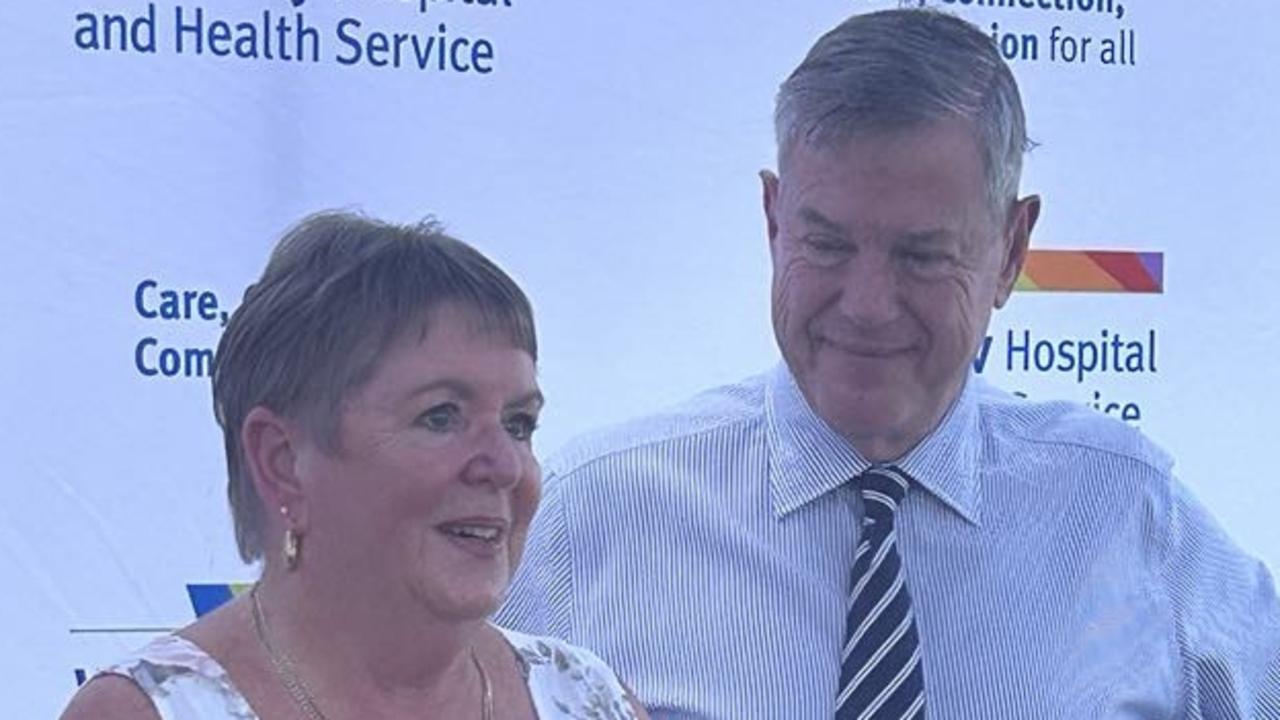Editorial: Latest thought bubble even dumber than ‘Steven’s Servos’
Steven Miles’ latest policy is designed purely as a reaction to the age-old whinge about no competition among electricity retailers, writes the editor.

QLD Votes
Don't miss out on the headlines from QLD Votes. Followed categories will be added to My News.
Two months ago, we dismissed the Premier’s out-of-left-field and uncosted plan to set up a string of government-owned petrol stations with the aim of forcing down prices as a desperate thought bubble that treated voters like mugs.
Well, he has done it again, and consequently we will too: Premier Steven Miles’s latest uncosted proposal for the government to re-enter the retail electricity market with the ostensible aim of forcing down prices is an even dumber idea than his “Steven’s Servos” plan.
We assume the political calculus here has nothing to do with actually helping Queenslanders with their power bills. Instead, this is a policy designed purely as a reaction to the age-old whinge in the regions about there being no competition among electricity retailers. The only option is the government-owned Ergon – whose prices are already regulated and subsidised by taxpayers.
We assume Labor hopes that the headlines and coverage of this bizarre idea leads some disengaged voters in the regions to think as they cast their ballot that the Premier is going to help drive down prices.
But he won’t. Because this will not work. And it is such a deep folly that we do not really know where to start with our critique – other than to agree with LNP deputy leader Jarrod Bleijie’s assessment of being “weird, wild and desperate”.
But words aside, perhaps the first fact to note is that retailers’ costs and margins make up less than 20 per cent of residential electricity bills. This means that whatever price cuts the government might manage to achieve by taking on its own Ergon in the regions will be marginal at best – perhaps $100 a year for a typical household, based on government figures.

The biggest contributors to what you pay are the wholesale price of energy – at 43 per cent of the total – and the costs of delivering that electricity to your home – at about 35 per cent of the total.
In Queensland, the government owns almost all the generators and all of the transmission lines, which means that state-owned businesses – such as Stanwell and CS Energy, and transmission firm Powerlink – are the responsible ones for nearly 80 per cent of the cost of residential electricity bills.
Last year, these firms delivered nearly $600m in dividends to the government. That means that if Premier Miles was serious about his plan to cut electricity prices, then technically he could just order them to deliver less in those dividends, and so charge lower prices for the power they generate and distribute.
The problem with that is that the politicians want those dividends so they can pay for other things. These power-generating businesses are the cash-cows of government.
Surely, though, this would be a far easier way to deliver cheaper prices for those in the regions than what is being proposed. Another thought: Maybe Mr Miles could just demand of Ergon that it does better?
Anyway, Mr Miles also says his brand new retailer would operate statewide – not just in the regions. And so in the southeast, it would be taking on more than 20 registered retail electricity providers that now offer services there. Former Labor premier Peter Beattie’s government introduced full retail competition in 2007 – ahead of the deregulation by the Palaszczuk government of southeast power prices in 2016.
These strategies have worked, at least to the extent they have let consumers shop around for the best deal. About 20 per cent of those customers who can, have each year been switching suppliers.

That being the case, the idea that a brand-new government-owned retailer could possibly undercut private companies that have been in the business for years is pretty crazy. Just consider the multimillion-dollar cost of creating this new electricity retailer from scratch – hiring staff, renting office space, setting up operating system and paying marketing gurus – and then somehow becoming the only public agency in history that operates more efficiently than competitors in the private sector.
Treasurer Cameron Dick says he thinks it will cost only $1.4m to set up a new retailer. This from a man who last year managed to spend $9bn more than he had budgeted. To be charitable, we will just say we think $1.4m is pretty unlikely.
All this being the case, surely the only way this “People’s Retailer” could possibly beat the existing retailers on price is if government subsidises the prices it charges.
Putting aside the competition laws that scenario would breach, it again raises the question of why the Premier would not just offer further rebates to households instead?
Rebates are not a long-term answer to the cost of power and cost-of-living pressures, but they make a heck of a lot more sense than what is being proposed.
Finally, even if the government does succeed in setting up its own electricity retailer offering the cheapest prices in town, then what? At a guess, private sector providers would start pulling out of the market, unable to compete with a government-owned competitor underwritten by public money.
The consequence of that would mean less competition in the retail electricity market, not more – and the exact opposite of the stated ambition of this ham-fisted plan.
Responsibility for election comment is taken by Chris Jones, corner of Mayne Rd & Campbell St, Bowen Hills, Qld 4006. Printed and published by NEWSQUEENSLAND (ACN 009 661 778). Contact details here
Originally published as Editorial: Latest thought bubble even dumber than ‘Steven’s Servos’


